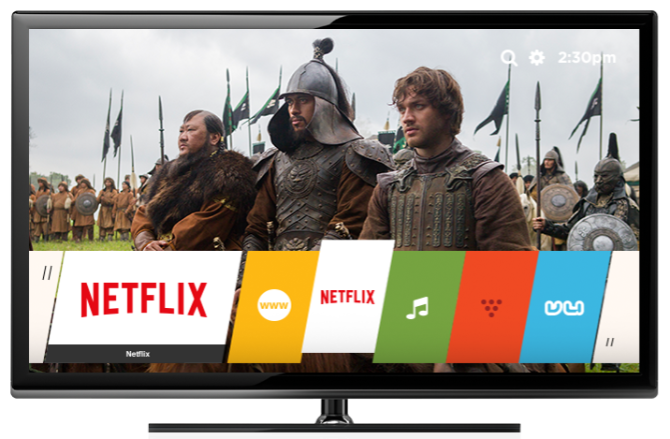
All content on this website, including dictionary, thesaurus, literature, geography, and other reference data is for informational purposes only. This information should not be considered complete, up to date, and is not intended to be used in place of a visit, consultation, or advice of a legal, medical, or any other professional. However, in small-scale scenarios where a community is trying to provide a public good, it can be difficult to overcome free riders. Pareto’s argument is framed for the negative case, such as the
example of pollution above, but it fits positive provisions as well.
The free rider problem is a market failure that occurs when a good is non-rivalrous and non-excludable, also known as a public good. Once a public good is established, “benefits are all privatized, cost is all socialized,” says Tarun Kushwaha, a marketing professor at George Mason University’s School of Business. In other words, people can consume the good without having to pay their fair share in its upkeep. The free rider problem is an economic concept of a market failure that occurs when people are benefiting from resources, goods, or services that they do not pay for. If there are too many free riders, the resources, goods, or services may be overprovided. The problem is commonly seen with public goods (goods with non-excludable benefits).
Chrissie Hynde: ‘I’m more relaxed now. Ageing is like being a pothead again’ – The Guardian
Chrissie Hynde: ‘I’m more relaxed now. Ageing is like being a pothead again’.
Posted: Sun, 06 Aug 2023 17:48:00 GMT [source]
It would be extremely
difficult to assess how large is the role of misunderstanding in the
reasons for action in general because those who do not understand the
issues cannot usefully be asked whether they do understand. But the
evidence of misunderstanding and ignorance is extensive (Hardin
2002). Despite such frequent and widespread recognition of the logic, it
was finally generalized analytically by Mancur Olson only in 1965 in
his Logic of Collective Action. In Olson’s account, what had
been a fairly minor issue for economists became a central issue for
political scientists and social theorists more generally. From early in
the twentieth century, a common view of collective action in pluralist
group politics was that policy on any issue must be, roughly, a vector
sum of the forces of all of the groups interested in the issue (Bentley
1908). In this standard vision, one could simply count the number of
those interested in an issue, weight them by their intensity and the
direction they want policy to take, and sum the result geometrically to
say what the policy must be.
Economic issues
If the
by-product theory is correct, however, this conclusion is called into
question. For example, we might join a union merely to obtain insurance
at the inexpensive group rate even though we vote against all its
strike proposals, would never join a picket line, and might even be
hostile to the idea of unions. The facts that there is a lot of collective action even in many
large-number contexts in which the individuals do not have rich
relationships with each other and that, therefore, many people are not
free riding in relevant contexts suggest at least three possibilities. First, there are ways to affect the incentives of group members to make
it their interest to contribute. Third, the actors in the seemingly
successful collective actions fail to understand their own interests. Each of these possibilities is important and interesting, and the
latter two are philosophically interesting.
Yet, collectively, this is the worst possible outcome for the environment. This highlights the fundamental concern at the heart of Olson’s identification of this issue—that individually rational behaviour (i.e., free riding) is likely to produce collectively irrational outcomes. It is a good idea for society as a whole, as the benefit is greater than the cost (each person contributing $6 would receive a benefit of $10). However, individuals see an incentive to free ride as the benefit of this public good is freely available among the members of society.
free ride American Dictionary
In the limiting case, where the costs of bargaining and enforcement approach zero, the setup becomes Coasian as the solution approaches the Pareto-optimal solution. Therefore, in standard price theory, in which price tends to equate to
marginal cost, such goods should have a zero price. In essence, price
theory commends free riding on the provision of such goods. This might
sound like merely a cute logical problem; but standard examples include
radio broadcasts, national defense, and clean air. If any of these is
provided for anyone, they are de facto provided for everyone in the
relevant area or group. That is, it is an inefficient distribution of goods or services that occurs when some individuals are allowed to consume more than their fair share of the shared resource or pay less than their fair share of the costs.
- However, one of the friends, let’s call him John, decides not to contribute anything.
- While non-altruistic social sanctions occur when people establish common property regimes, people sometimes punish free-riders even without being rewarded.
- In our sidewalk example, this might mean contributing to the sidewalk fund for no reason other than that you feel obligated to as a member of the community.
- Finally turn to the possible role of misunderstanding in leading
people to act for collective provisions.
While non-altruistic social sanctions occur when people establish common property regimes, people sometimes punish free-riders even without being rewarded. The exact nature of motivation remains to be explored.[30] Whether costly punishment can explain cooperation is disputed.[31] Recent research finds that costly punishment is less effective in real world environments. Businesses don’t want to provide public goods because they are unprofitable. One commonly claimed obligation of political participation is an obligation to vote. Support for this is sometimes attempted by appealing to a loose generalization argument that asks, “What if everybody failed to vote?
Other Resources
In generalizing from
the motive of self-interest to the explanation and even justification
of actions and institutions, Hobbes wished to reduce political theory
to an analog of geometry or physics, so that it would be a deductive
science. All of the statements of the logic of collective action above
are grounded in an assumption of the self-interested incentives of the
actors. When the number of members of a group that would benefit from
collective action is small enough, we might expect cooperation that
results from extensive interaction, mutual monitoring, and even
commitments to each other that trump or block narrowly self-interested
actions. But when the group is very large, free riding is often clearly
in the interest of most and perhaps all members. In the first category are the by-product theory proposed by
Olson and the possibility that political entrepreneurs, at
least partially acting in their own interest, can engineer provisions.

For example, certain gated parks are only accessible to residents in the surrounding area. In our sidewalk situation, a homeowners association might just scrap the project and implement requirements for homeowners to maintain the section of the sidewalk in front of their house. But that doesn’t necessarily mean they’re free, it just means the cost doesn’t fall on you. If you can consume something — be it music on the street or a communal park — without having to pay for it, that makes you a free rider. Gain unlimited access to more than 250 productivity Templates, CFI’s full course catalog and accredited Certification Programs, hundreds of resources, expert reviews and support, the chance to work with real-world finance and research tools, and more.
The Logic of Collective Action
All ships and sailors can profit from lighthouses to keep them safe, but most of them don’t have to pay for it, as lighthouses are typically financed by the governments free rider meaning that build them. For these two reasons, property rights cannot be clearly defined and enforced. Individuals can take advantage of public goods without paying for them.

The logic of collective action has become one of the richest areas
of research and theory in rational choice theory in the social sciences
and philosophy. Much of that literature focuses on the explanation of
varied social actions and outcomes, including spontaneous actions,
social norms, and large institutions. In general, voting seems clearly to
be a case of collective action for the mutual benefit of all those who
support a particular candidate or whose interests would be furthered by
that candidate’s election.
” or, in the language here, “What if
everybody chose to free ride on the voting of others? ” The
practical answer to that question, of course, is that everybody does
not choose to free ride, only some do, and that it is exceedingly
unlikely that everyone will choose to do so. But if I think almost no
one else will vote, I should probably conclude that it is therefore
then in my interest to vote (that day has yet to come). Perhaps there
is some number of citizens, k, such that, if fewer than k citizens
vote, democracy will fail. If so, half of all citizens seems likely to
be a number significantly greater than k.
I might readily expect the margin to be very large or I might
expect it to be very narrow. But I am unlikely to expect it to be
tied, so that my own vote would be decisive. Hence, although the
actual provision is a step function, my vote or my free riding must be
based on some sense of the expected effect of my vote, and that must
generally be minuscule for any election in a large electorate. With
extremely high probability, my vote is likely to have no effect.
- Unfortunately, his argument is buried in a large four-volume magnum
opus that is a rambling discussion of many and varied topics, and it
seems to have had little or no influence on further discussion. - Olson notes that very many politically provided goods, such as
highways and public safety, roughly have the qualities of Samuelson’s
public goods and therefore face the problem of free riding that
undercuts supply of the goods. - Erika Rasure is globally-recognized as a leading consumer economics subject matter expert, researcher, and educator.
Suppliers provide a common platform where users (beneficiaries) contribute to each other to develop the platform. The owner provides a platform where everyone can write new articles on the page, and other visitors can read it. For this reason, the government takes part in providing public goods. Even though it is not economically profitable, public goods positively benefit society (positive externalities). Interestingly, solutions vary based on how you expect consumers to behave or, in other words, if you think people are selfish or altruistic.
Argument from the fallacy of composition seems to be very appealing
even though completely wrong. Systematically rejecting the fallacy of
composition in social theory, perhaps especially in normative theory,
has required several centuries, and invocation of the fallacy is still
pervasive. John Stuart Mill ([1848] 1965, book 5, chap. 11, sect. 12) expresses
the logic very clearly in his defense of laws to require maximum hours
of work. He supposes that all workers would be better off if the
workday were reduced from, say ten to nine hours a day for all, but
that every individual worker would be better off working the extra hour
if most others do not. The only way for them to benefit from the
shorter workday, therefore, would be to make it illegal to work longer
than nine hours a day. As an economic issue, the problem occurs when everyone can consume a resource in unlimited amounts, no one can limit anyone else’s consumption, but someone has to produce and maintain the resource.
For example, by requiring everyone to pay taxes, the government could finance national defense. The free rider problem is an example of a market failure for public goods. People benefit from resources, goods, or services, even if they don’t pay for them.

It usually falls upon the government to provide these goods, such as national defense or transportation infrastructure. These public goods can avoid the free rider problem because technically you are paying the government to provide these services — through taxes. Both the voting that does happen and the non-voting or free riding
that accompanies it as well as the level of ignorance of voters call
simple normative theories or views of democracy into question.
Whether taxpayers or not, all received the same protection from the police and the army. Of course, when saving you on the road from crime, the police will not ask you whether you paid taxes or not before helping you. Even if they don’t pay, they can also benefit from the information on the site. Although it is beneficial for local residents, outsiders who cross the area also get the same benefits even though they do not contribute to buy. Likewise, when your friends visit from out of town, they also benefit from it. One solution would be to privatize the public good and make it excludable or get rid of it entirely.